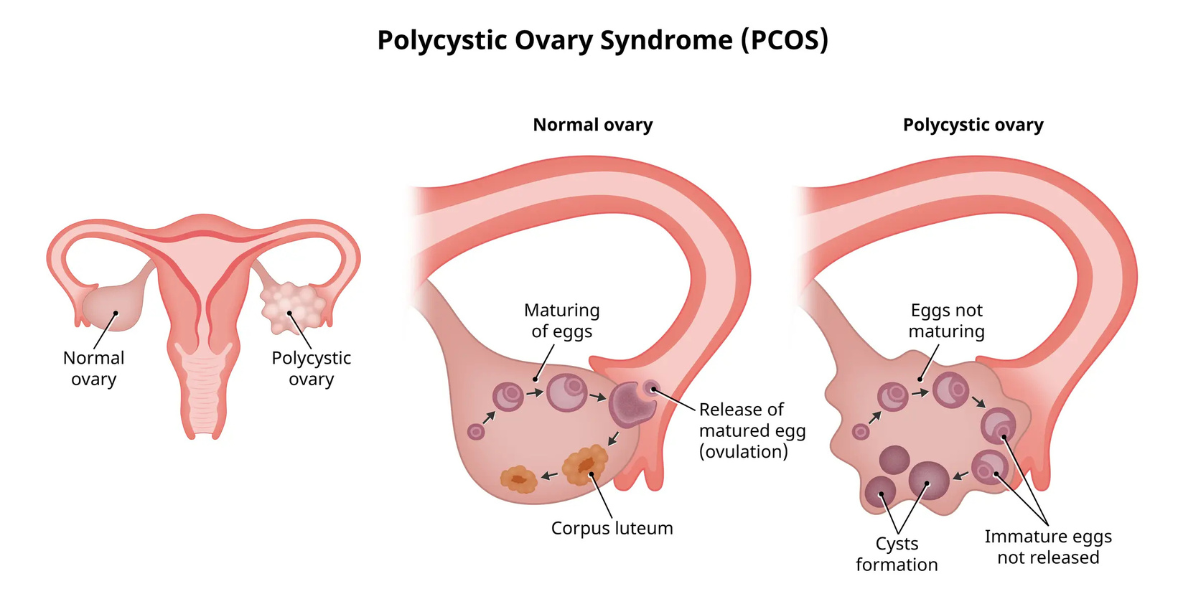
Guide to manage PCOS
Polycystic Ovary Syndrome (PCOS) is a complex hormonal disorder affecting millions of women worldwide. Characterized by irregular periods, ovarian cysts and hormonal imbalances, PCOS can impact various aspects of a woman’s health and well-being. PCOS is often associated with insulin resistance, which can lead to weight gain, difficulty losing weight and an increased risk of Type 2 diabetes. Hormonal imbalances, including elevated levels of androgens (male hormones), can cause acne, excessive hair growth and hair loss of the scalp. PCOS is a leading cause of infertility due to irregular ovulation. While there’s no cure for PCOS, adopting a healthy lifestyle helps to manage the condition.
Firstly it is very important to pay attention to the foods you consume. Opting for food that are nutrient-dense and whole foods like fruits, vegetables and lean proteins help in contributing to a healthier lifestyle while incorporating anti-inflammatory foods like fatty fish, nuts, seeds and leafy greens helps to reduce inflammation associated with PCOS. Further try to limit refined carbohydrates and sugars, which can spike insulin levels and exacerbate PCOS symptoms.
Exercise plays an important role in managing the weight gained due to PCOS. Not just that, but movement helps to make sure that insulin sensitivity is improved and stress levels are reduced, which all are beneficial for PCOS management. Try to incorporate as much as cardiovascular exercises, strength training and flexibility exercises into your routine. Find activities you enjoy, whether it’s dancing, swimming, any physical sport or yoga to make exercise a sustainable part of your routine.
Prioritize quality sleep by establishing a consistent sleep schedule and creating a relaxing bedtime routine. Aim for 7-9 hours of sleep per night to support hormone regulation. Minimize exposure to screens and stimulating activities before bedtime to promote better sleep quality.
Chronic stress can exacerbate PCOS symptoms by increasing cortisol levels and disrupting hormonal balance. Incorporating stress management techniques into your daily routine can help reduce stress. Practice mindfulness meditation, deep breathing exercises or yoga to reduce stress levels and promote relaxation. Engage in activities that bring you joy and fulfillment, whether it’s spending time in nature, pursuing creative hobbies or connecting with loved ones. Prioritize self-care activities to nurture your physical and emotional well-being.
Lastly, consult your gynecologist regularly to stay updated on your progress in battling PCOS. Try to reach out to multiple women through online communities to share experiences and find encouragement from others facing similar challenges. Remember that small changes can lead to significant improvements over time so be patient and compassionate with yourself as you navigate your PCOS journey.






